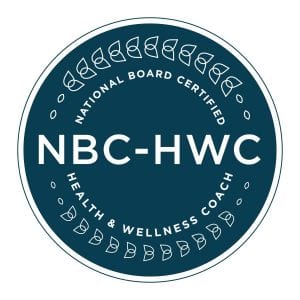Your gallbladder stores bile produced by your liver, and releases it into the digestive tract as needed. The gallbladder is misunderstood by most people, and sadly undervalued by many in the medical field, because they do not understand nutrition or what organs function to distribute health to the body through the foods we eat.
Trying to digest fat without bile is like trying to wash greasy dishes without soap–it doesn’t work very well. So, rather than lose the body part that regulates bile secretion into your digestive tract, I believe it is far better to address a malfunctioning gallbladder by looking at dietary imbalances.
Addressing digestive issues at the source of the problem, the food you eat, is always a more direct way to correct system malfunctions. Every system in our body can function as it was meant to function if we feed the system the foods it was meant to have for fuel. It knows what to do with that, but sadly it is what we don’t know that is hurting us. The health of every organ and every system begins and ends with the foods you choose.
The gallbladder is a good example of how the medical world deals with the symptoms brought on by this dysfunction. How about correcting the problem at the source instead of blaming the organ! The organ can only do so much and it is trying desperately to do what it was created to do, often with not much help from us. It is completely overworked, underappreciated and misunderstood, but it continues to crank out the work, while we pile more work on it with every bite we take. What can we do? Read on.
My husband was in this situation a few years ago, and together we helped him to keep his precious gallbladder, even when the doctor said, “surgery.” We were in emergency room with him rolling on the floor in pain. We didn’t know what was going on, but the only choice the medical world gave us was remove it – “you don’t need it” they said. Well they are wrong. Wrong, if you know what it does for the body.
If the condition is advanced, gallbladder removal occasionally becomes necessary, however, it should not be taken lightly. If this happens, you can expect that fats in particular may have trouble breaking down in your digestive tract, and diarrhea may also become a problem. With the mechanism for bile regulation removed, your GI tract may receive either too much bile, or too little. So, I always recommend that we adjust your diet before it’s necessary to remove your body’s bile regulator.
High-quality fats—especially Omega 3 fats are essential for good health and if you don’t have a gallbladder you will have an impaired ability to absorb them. If your gallbladder is removed then you need to compensate by providing an increased level of fat digestive enzymes (lipase) to compensate for this. You can combat poor digestion with HCL (hydrochloric acid) and enzyme. The best enzyme to supplement would be an enzyme that breaks down fat or a lipase. This is because you will not be producing much bile, which typically aids in fat digestion. One key thing to keep in mind with gallbladder problems, and even after gallbladder removal, is that your body still needs to take in “good” fats. So getting a good source of omega 3 fat is still essential to good health, even though your body may have some trouble processing all fats if you have gallbladder problems. I have a great Omega 3 to recommend.
It helps to eat slowly and chew your food thoroughly to give stomach enzymes a chance to do their thing. Processed foods are the culprit to why 85,000 people a year are losing their gallbladders (and their health in general). This can lead to a whole host of health troubles, as many people today are getting a majority of their calories from these highly processed, low nutritional value foods simply because of our busy lives. Be very careful with so-called digestive aids, including proton pump inhibitors and H2 blockers (Pepsid AC, Prilosec, Zantac, etc) as they will actually endanger your health because they shut down stomach acid production. I really dislike medicine :/ for this reason – for every one thing it can help, there are a myriad of other things that it hurts.
Hopefully this trip through your digestive system has helped you to a better understanding of why it is vitally important to provide your body with the good fuel and good digestive aids it needs, and why providing too much of the wrong kinds of foods or the wrong kinds of digestive aids can lead to problems. You should also understand why a diet too rich in simple sugars can lead to a whole host of negative consequences, from unhealthy yeast overgrowth (which can lead to leaky gut syndrome, irritable bowel syndrome, poor absorption of nutrients, excess gas, weight gain, and craving carbs). Also, a diet rich in food-like substances containing man-made chemicals may also be the cause of other digestive maladies, such as: Acid reflux, indigestion, heartburn, abdominal pain, vomiting, and diarrhea.
Remember, your digestive system is an extremely complex dynamic system. Here are some final proactive steps you can take to aid in your digestion and help your organs and systems to flourish and keep digestive disorders away include:
- Consume foods as close to their natural state as possible
- Consume raw foods regularly
- Consume fermented foods
- Consume a balance of different types of foods
- Avoid man-made chemicals
- Avoid pharmaceutical drugs
- Avoid a diet rich in simple sugars
- Avoid Genetically Modified or Genetically Engineered foods
Every day, you are presented with a wide range of food choices, and our modern world has found some truly innovative ways to present food to you that appeals to all your senses (smells great, looks great, tastes great). However, relying on your senses alone to choose the nutrients your body needs can lead you down a slow path of self-destruction, chronic diseases and shortened lifespan for not just yourself but for your future generations as well.
It truly does take an act of will to train your body to recognize real, whole food as delicious and nutritious, when the alternative is food-like fake substances that have been processed, designed, crafted and marketed to appeal to all of your senses and to your intellect.









Follow Me